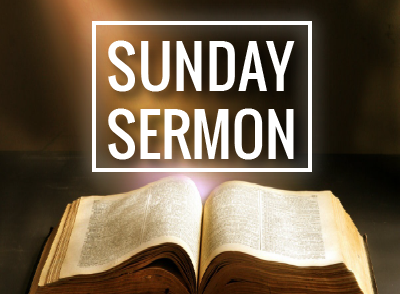
Micah 6:1-8
Matthew 5:1-12
There is no more excellent summation of the law of God after that of “love God and love neighbor” then the passage from Micah:
“He has shown you, O mortal, what is good. And what does the Lord require of you? To act justly and to love mercy and to walk humbly with your God.” Micah 6:8
As lovely as this passage sounds, it is a hazardous passage if we separate it from its context. In our world where the average attention span is a few moments, it is nice that we can summarize the law and prophets. However, there is a real danger in voicing “justice, kindness, and obedience” too far separated from the socio-economic realities that give this passage meaning. Micah himself warns of this danger and the judgment that follows the community that becomes killed at “talking the talk” but not “walking the walk.”
It seems that is the 8th century before Christ, people were doing the same things they are doing today, they like to call themselves Christians, and they want to be seen in the church and praying in public. They like to scream that they are being oppressed because of their faith when others hold them accountable for their lack of faith.
What Micah is doing here is critiquing the exclusive attention paid to the cultic practices of religious faith, without the ethical obedience that faith in God requires. He asks in verse 6, “With what shall I come before the Lord, and bow myself before God on high?” He then offers a list of potential offerings; burnt offerings, calves a year old, thousands of rams, ten thousand rivers of oil, my firstborn. His answer is simply that none of these offerings are pleasing to God when they are stripped from the context that gives them meaning.
God desires more than empty words. God wants justice that is measured by how well the most vulnerable fare in the community. A loyal love that is equal with the kind of love that God has shown towards Israel. And walking, not just walking but walking in an ethical life.
Examples of this are all around us. There will be all sorts of pronouncements from pulpits all around the country about how wonderful people are and that if they follow the rules, God will reward them. All the while, right outside the doors of many of those same churches, people are starving, they lack affordable housing, clean water, access to health care, safe schools, and the myriad of other issues facing the average person today. Inside the people of God are talking the talk but they are ignoring the walk that must be done outside the church!
It might be helpful to remember that this passage emerges from God’s deep disappointment in the people, who have failed to bring about the kind of just community envisioned by the God that liberates people from political and economic bondage. God’s people have been put on trial in this passage, and earlier in prophecy, God has outlined the specifics of the charges;
The Powerful covet fields, and seize them; houses, and take them away (2:2)
They tear the skin off my people (3:2)
They send violence on the poor (3:5)
The political leaders take bribes, and the religious leaders sell out for money (3:11)
This text is a challenge to do justice as part of our worship experience and to do justice as part of the liturgy. We also heard the Beatitudes from the Gospel of Matthew. These are a beautiful reminder that the last shall be first and who God considers blessed; the poor in spirit, those who mourn, the meek, the merciful, the pure in heart. And we also hear about those who hunger and thirst for righteousness sake, and the peacemakers who shall be called the children of God. We understand that those who will be persecuted for righteousness sake will inherit heaven. And we are told to rejoice and be glad for those who are reviled and persecuted will have a great reward in heaven.
But the key to all of this is to look past our interest and to look out for others. Nowhere in the Gospel does it proclaim that we are to care for the least of these only after we have taken care of ourselves.
It is time for us as individuals, and it is time for us as a Church to start walking the walk. I know it is scary because we might be called out, but we truly have no other choice. If we sit here and pray to God, sing songs, raise our voice and hands in praise, then we have to be willing to do the same outside of the building, and only then will we truly do justice, love kindness, and walk humbly with our God.
Amen.
